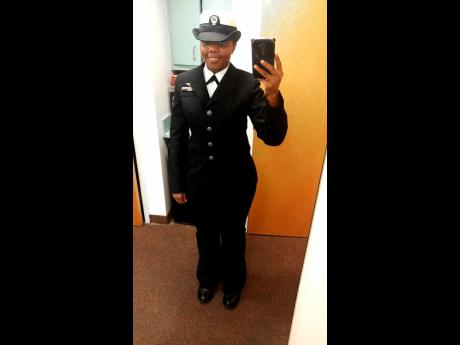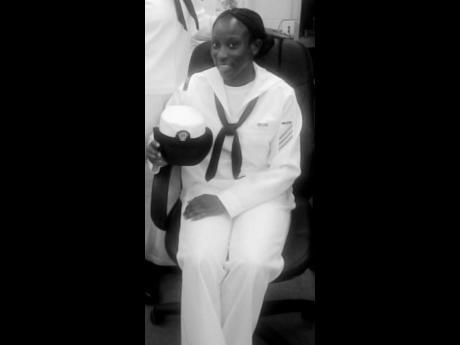US CITIZENSHIP RUSH
Jamaicans third most naturalised through military
Jamaican migrants rank among the top three groups of foreigners who use the United States military to gain citizenship, data from the United States Citizenship and Immigration Services (USCIS) indicate. Between 2017 and 2021, some 2,360 Jamaicans...
Jamaican migrants rank among the top three groups of foreigners who use the United States military to gain citizenship, data from the United States Citizenship and Immigration Services (USCIS) indicate.
Between 2017 and 2021, some 2,360 Jamaicans became naturalised citizens of the North American country, ranking only behind the Philippines, with 3,150, and Mexico, with 2,510.
China, South Korea, Nigeria, Ghana, India, Haiti, and Nepal rounded out the top 10.
Within those five years, 2021 accounted for the period over which the highest number of Jamaicans became naturalised through the military, with 880 being processed.
The USCIS said half of all service members were between 22 and 30 years old when they naturalised, while the median age of all service members who naturalised between 2017 and 2021 was 27.
It said approximately 20 per cent were 21 and under when they naturalised and about six per cent were older than 41.
Within two months of joining the Navy, 28-year-old Jamaican Sashagaye McKenzie became a citizen.
The process was completed by the time she was through with roughly eight weeks of boot camp and accession training.
That training, commonly known as A School, is where recruits go to learn technical skills in their selected military occupational speciality field.
“It’s been beneficial. In the state where I live, to land one of the most sought-after jobs, you have to be a citizen. Also, with the military, you get a lot of benefits, like when buying a house, you don’t have to put up a down payment,” McKenzie told The Gleaner in an interview on Tuesday.
She has served six years in the military and a year in the reserves.
Melissa Nasar, while wanting to join the military prior to relocating to the US, said that it was the “quickest” route to citizenship.
The 32-year-old also said that it was an avenue to becoming independent after bouts of disagreement with a relative with whom she shared residence.
“Once you’re in the military, you get a pay cheque. You get somewhere to live and you really don’t answer to anybody except the military. You get everything you need to survive here,” Nasar said.
She told The Gleaner that she became a citizen within six months of joining.
Nasar served for five years and left as an E5 petty officer second class.
Christina McKesey said soured relations between her and relatives pushed her into the military, which provided her with a place to stay, having left Jamaica and acquiring permanent resident status through her father.
“You ever hear once the Jamaican goods weh you bring go foreign done inna three days, everybody start make up them face? That’s what happened. So I tried to stay scarce,” she told The Gleaner, hinting at the rocky transition many migrants face when they arrive in the US.
She said after brainstorming with Nasar, the two decided that her best course of action would be through the military.
“We thought to ourselves, they could pay for college if we decided to go back to school, and this was the best way out of the house,” she said.
McKesey said that she sat and was successful in the Armed Services Vocational Aptitude Battery exam, which is a timed, multi-aptitude test given at more than 14,000 schools and Military Entrance Processing Stations in the US.
“I said to them, the quickest job available is what I need. So I went into aviation mechanics,” she said, noting that she became a citizen within seven months.
However, she cautioned that the requirements have changed for some specialities since she enrolled in 2013.
Lieutenant Colonel Martin Rickman, head of the HOPE programme, said Jamaicans who become naturalised through the military should not be frowned upon.
HOPE is a training and apprenticeship programme that provides an avenue for the development of fully rounded individuals through a national service corps to become productive in society.
“We have had persons come from especially other Commonwealth countries, because we have that background agreement based on our laws, and become a member of the Jamaica Defence Force.
“So I have zero issues with that ... But they must be willing to go through the process and serve the country. Once they do that, I think it (citizenship) is due to them,” Rickman said in a Gleaner interview.
“It’s not everyone in a country is willing to put their lives on the line for the country. When you have persons who come along and are willing to do so, even if they are doing it for a bit of selfish reason, you can’t knock them,” he said.


